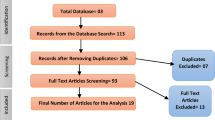Background
Some investigators have postulated that a history of being the victim of childhood sexual abuse may impact outcome of bariatric surgery.
Methods
In this retrospective chart review, we examined the electronic medical records of 152 adults with morbid obesity who underwent Roux-en-Y gastric bypass and who had a weight recorded in their medical record or reported in a follow-up surgery at 2 years after the RYGBP. The purpose of this retrospective chart review was to examine the relationship between psychosocial factors assessed preoperatively and the percent of excess weight lost (%EWL) at 2 years after bariatric surgery.
Results
We found a high prevalence of being the victim of childhood sexual abuse (27%), adult sexual trauma (9%), and/or physical abuse (19%) at the initial evaluation. There was no association between these factors and %EWL at 2 years. However, when we examined participants–medical records for post-operative psychiatric hospitalizations at our medical center, 8 of 11 hospitalized patients reported a history of childhood sexual abuse (73%).
Conclusions
History of being the victim of childhood sexual abuse is reported frequently by patients seeking bariatric surgery. Our finding that having been the victim of childhood sexual abuse may be associated with increased risk of psychiatric hospitalization after RYGBP has several clinical implications. First, we recommend that clinicians assess carefully for a history of sexual or physical abuse, and secondly, abuse survivors may need to be told that there is an increased risk of psychiatric morbidity after bariatric surgery. Finally, perhaps close monitoring of these patients may prevent psychiatric difficulties after surgery. Further research to verify these preliminary findings is clearly needed.
Similar content being viewed by others
References
Balsiger B, Kennedy F, Abu-Lebdeh H et al. Prospective evaluation of Roux-en-Y gastric bypass as primary operation for medically complicated obesity. Mayo Clin Proc 2000; 75: 673–0.
Bocchieri L, Meana M, Fisher B. A review of psychosocial outcomes of surgery for morbid obesity. J Psychosom Res 2002; 52: 155–5.
Fabricatore A, Crerand C, Wadden T et al. How do mental health professionals evaluate candidates for bariatric surgery? Survey results. Obes Surg 2006; 16: 567–3.
Devlin M, Goldfein J, Flancbaum L et al. Surgical management of obese patients with eating disorders: A survey of current practice. Obes Surg 2004; 14: 1252–.
Wadden T, Sarwer D. Behavioral assessment of candidates for bariatric surgery: A patient-oriented approach. Obesity 2006; 14: 53–2.
Allison K, Wadden T, Sarwer D et al. Night eating syndrome and binge eating disorder among persons seeking bariatric surgery: Prevalence and related features. Obesity 2006; 14: 77–2.
Herpertz S, Kielmann R, Wolf A et al. Do psychosocial variables predict weight loss or mental health after obesity surgery? A systematic review. Obes Res 2004; 12: 1554–9.
Sarwer D, Wadden T, Fabricatore A. Psychosocial and behavioral aspects of bariatric surgery. Obes Res 2005; 13: 639–8.
Pawlow L, O’Neil P, White M et al. Findings and outcomes of psychological evaluations of gastric bypass applicants. SOARD 2005; 1: 523–.
Rosik C. Psychiatric symptoms among prospective bariatric surgery patients: Rates of prevalence and their relation to social desirability, pursuit of surgery, and follow-up attendance. Obes Surg 2005; 15: 677–3.
Sarwer D, Cohn N, Gibbons L et al. Psychiatric diagnosis and psychiatric treatment among bariatric surgery candidates. Obes Surg 2004; 14: 1148–6.
Bauchowitz A, Gonder-Frederick L, Olbrisch M et al. Psychosocial evaluation of bariatric surgery candidates: A survey of present practices. Psychosomatic Med 2005; 67: 825–2.
Kalarchian M, Marcus M, Wilson G et al. Binge eating among gastric bypass patients at long-term follow-up. Obes Surg 2002; 12: 270–.
Gustafson T, Sarwer D. Childhood sexual abuse and obesity. Obes Rev 2004; 5: 129–5.
King T, Clark M, Pera V. History of sexual abuse and obesity treatment outcome. Addict Behav 1996; 21: 283–0.
Wadden T, Butryn M, Sarwer D et al. Comparison of psychosocial status in treatment–seeking women with class III vs class I–II obesity. Obesity 2006; 14 (Suppl 2): 90S–8S.
Grilo C, Masheb R, Brody M et al. Childhood maltreatment in extremely obese male and female bariatric surgery candidates. Obes Res 2005; 13: 123–0.
Grilo C, White M, Masheb R et al. Relation of childhood sexual abuse and other forms of maltreatment to 12-month postoperative outcomes in extremely obese gastric bypass patients. Obes Surg 2006; 16: 454–0.
Larsen J, Geenen R. Childhood sexual abuse is not associated with a poor outcome after gastric banding for severe obesity. Obes Surg 2005; 15: 534–.
Collazo-Clavell M, Clark M, McAlpine D et al. Assessment and preparation of patients for bariatric surgery. Mayo Clin Proc 2006; 81 (Suppl 10): S11–S17.
Kendrick M, Clark M, Collazo-Clavell M et al. Multidisciplinary team in a bariatric surgery program. In: Buchwald H, Cowan G, Pories W, eds. Surgical Management of Obesity. Philadelphia: Saunders Elsevier 2006: 425–1.
McMahon M, Sarr M, Clark M et al. Clinical management after bariatric surgery: Value of a multidisciplinary approach. Mayo Clin Proc 2006; 81 (Suppl 10): S34–S45.
Clark M, Balsiger B, Sletten C et al. Psychosocial factors and 2-year outcome following bariatric surgery for weight loss. Obes Surg 2003; 13: 739–5.
Author information
Authors and Affiliations
Corresponding author
Rights and permissions
About this article
Cite this article
Clark, M.M., Hanna, B.K., Mai, J.L. et al. Sexual Abuse Survivors and Psychiatric Hospitalization after Bariatric Surgery. OBES SURG 17, 465–469 (2007). https://doi.org/10.1007/s11695-007-9084-4
Received:
Accepted:
Published:
Issue Date:
DOI: https://doi.org/10.1007/s11695-007-9084-4




